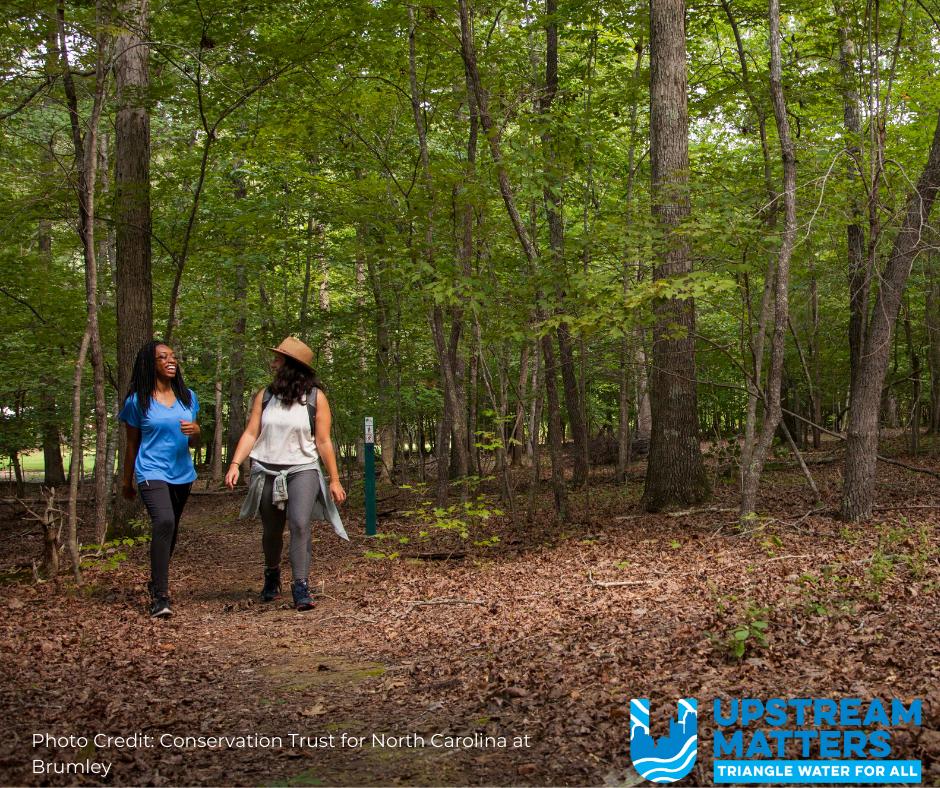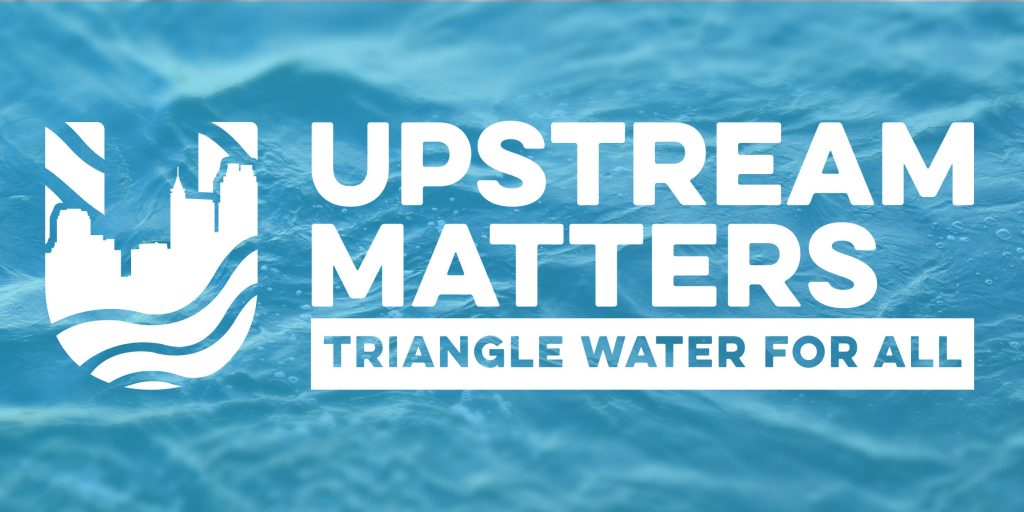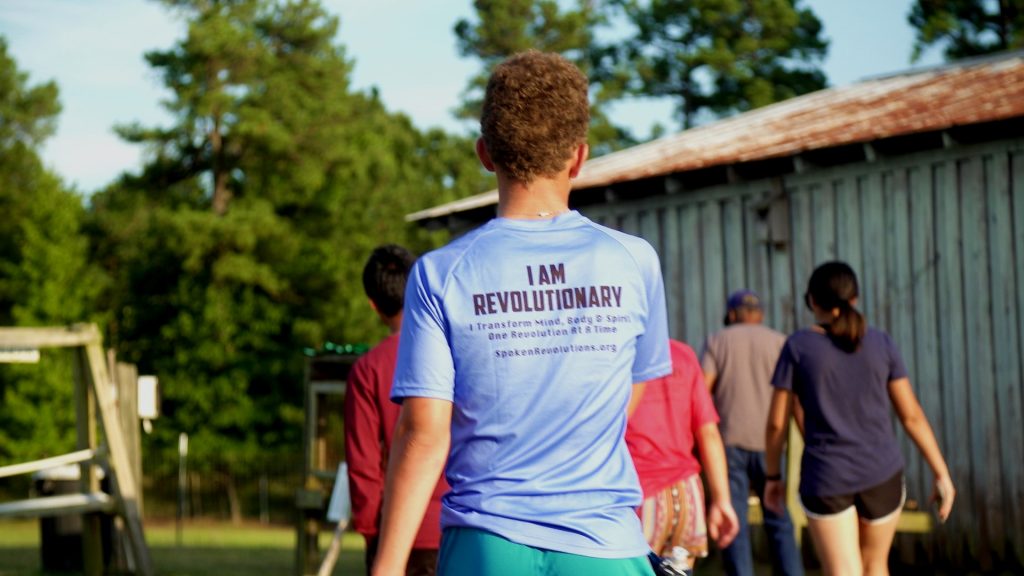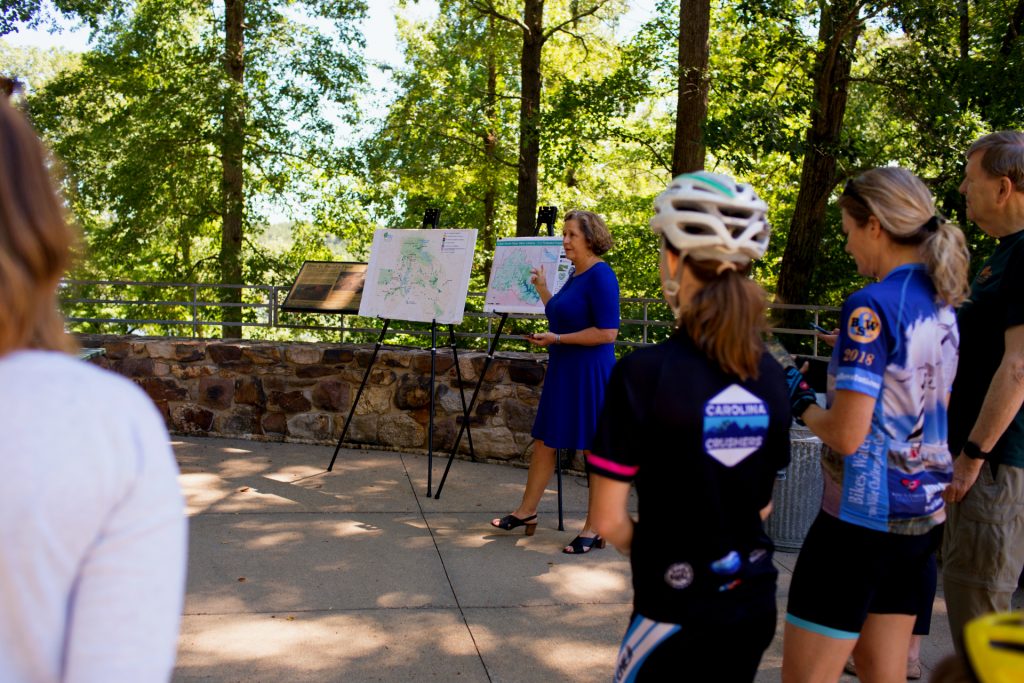Novel partnerships and long-term collaboration enable the region to address watershed health
North Carolina’s Triangle region (Raleigh-Durham-Chapel Hill-Cary-Garner) is one of the fastest-growing areas in the country. Rapid development threatens the forests, wetlands and grasslands that naturally protect drinking water supplies for 600,000 people in Raleigh, Garner, Wake Forest, Rolesville, Knightdale, Wendell and Zebulon areas. Natural infrastructure, like forests and wetlands, can address these challenges by providing basic services from water flow regulation and flood control to water purification and water temperature regulation. But with the rising cost to acquire land in and around the Triangle, protecting these places has become increasingly costly for nonprofits and public agencies.
In recent years, public agencies Raleigh Water, Wake County, City of Durham and Town of Cary have worked alongside local land trusts including Conservation Trust for North Carolina, The Conservation Fund, and Triangle Land Conservancy to acquire and manage land in the Falls and Jordan Lake watersheds. Now, the Caterpillar Foundation is among corporate foundations and private investors stepping up to fill a critical funding need.
The Foundation will invest $250,000 in natural infrastructure and land conservation as part of a new partnership to safeguard important local natural lands.
“Local communities in the Triangle Region are increasingly investing in natural infrastructure, although the COVID-19 pandemic has strained public budgets and limited cities and their utilities resources and capacity to protect vast watersheds at a critical time,” said Edward Buchan, City of Raleigh.
This initiative fits into a growing movement to integrate natural infrastructure with traditional concrete-and-steel infrastructure to improve delivery of core services, like drinking water and flood protection, while increasing resilience. World Resources Institute, a global research organization, has advised this alliance on strategies to combine “green” and “gray” infrastructure by leveraging new partnerships and funding opportunities. The Caterpillar Foundation is one of the first corporate foundations to develop a dedicated program to support this new approach.
“Novel partnerships and long-term collaboration are critical to addressing watershed health across the region,” said CTNC Executive Director Chris Canfield. “Everyone has a role to play. Public water users provide the base funding through the utilities, land trusts collaborate on protection plans and secure the land, and private partners like the Caterpillar Foundation help get it all over the finish line.”
The Caterpillar Foundation hopes to both accelerate the program with this new financing and encourage volunteer engagement of their locally-based employees.
“This partnership provides us the opportunity to not only advance an exciting new model for watershed protection, but does so in a community in which many Caterpillar families call home,” said Caterpillar Foundation President Asha Varghese. “We hope the success of initiatives like this can build momentum for new environmental innovation and investment. We believe multi-sectoral collaboration is key to achieving sustainable infrastructure solutions, and ultimately, building resilient communities.”
“There are thousands of community water systems that could benefit from this model to protect and manage natural infrastructure assets,” said Todd Gartner, Director of WRI’s Cities4Forests and Natural Infrastructure Initiatives. “Leading initiatives like this set a new high-water mark for city-led innovation that harnesses nature’s potential to supply clean drinking water, creates recreational opportunities, and boosts resilience.”
The Caterpillar Foundation investment will supplement public and private funds to make possible the acquisition of land in the Upper Neuse watershed. It will protect river and stream frontage that are highly vulnerable to development. In addition to ecosystem services, these natural lands provide important outdoor opportunities for communities to connect with nature. Creating new outdoor recreational opportunities can both stimulate the local economy and boost public health.
In Raleigh, the average water customer pays an additional $0.57 per month, which contributes funds toward the protection of thousands of acres of crucial natural lands through the Upper Neuse Clean Water Initiative, a program of Raleigh Water. For more information on collaborative watershed protection and restoration efforts spearheaded by public and private partnerships in the Triangle, visit upstreammatters.org.










